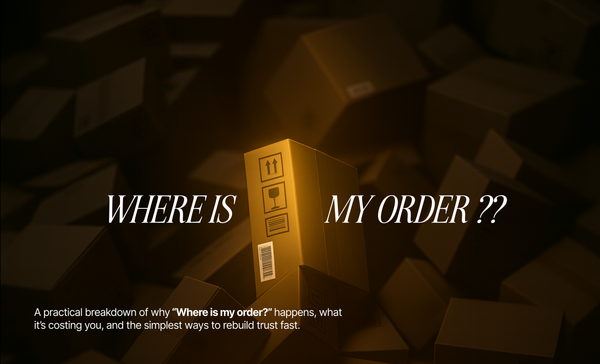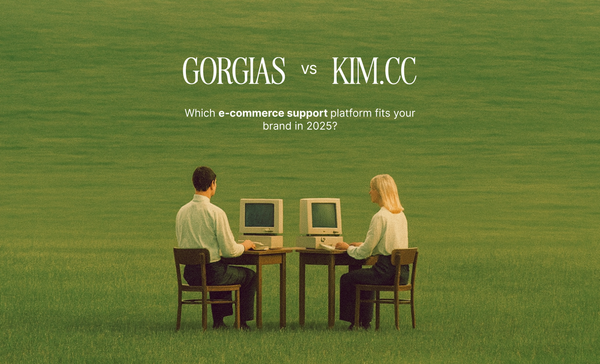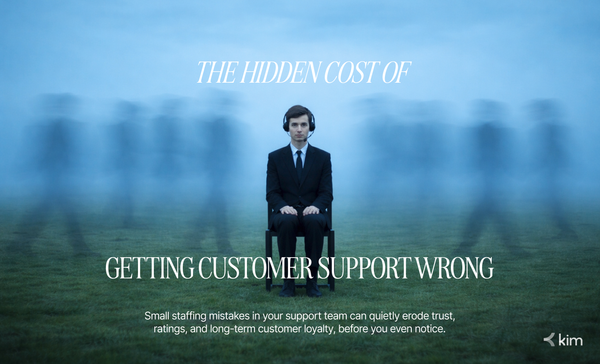Hire Customer Support for Industry Experience or Soft Skills? Here's What Actually Matters
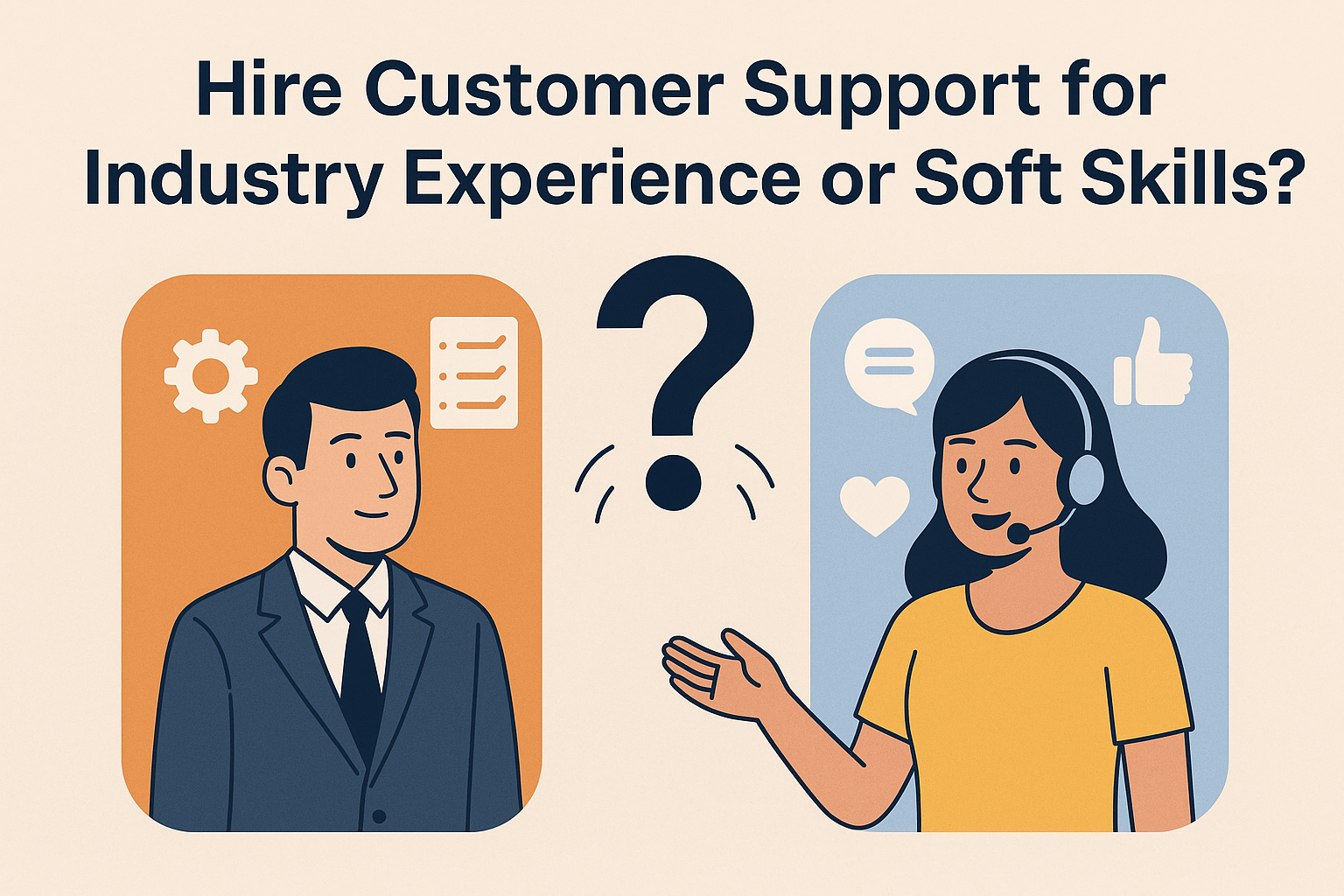
If you're hiring customer support for your ecommerce or Shopify store, you're likely stuck on one key question:
Should you hire someone with deep industry knowledge, or someone who simply knows how to treat people well?
It feels like a tradeoff.
A rep with industry experience can jump into your product catalog faster. But someone with soft skills can build brand love, sometimes in just one conversation.
So which one should matter more?
Here’s what we’ve learned helping ecommerce brands build affordable, high-performing support teams (and what most founders overlook).
Why Industry Experience Feels Like the "Safe" Option
You see a resume with prior roles in skincare, tech accessories, or supplements. They’ve worked in your niche. They know the customer base. Maybe they even understand your return policy already.
It feels like a shortcut.
And in some cases, it is.
Having someone who speaks the language of your industry means:
- Less time spent on product training
- Fewer mistakes on technical issues
- More confidence when handling tricky queries
If you're in B2B or deal with compliance-heavy products, this can be non-negotiable.
But for the average DTC brand?
Industry knowledge often gets overvalued.
The Underrated Power of Soft Skills
Let’s say someone knows every skincare ingredient or understands the fine print of your returns policy.
But they talk to customers like a bot. They sound robotic. Or worse, they come off as cold or indifferent.
That’s a bigger issue than getting a product detail wrong.
Because customer loyalty isn’t built on perfect answers, it’s built on how people feel during a support interaction.
Soft skills matter more than you think. Here’s why:
- Empathy turns issues into loyalty
A late delivery hurts less when your agent genuinely cares. - Tone shapes perception
How your team speaks can make or break your brand’s image, especially in public replies. - Attitude scales. Industry doesn’t.
You can teach someone about SKUs and tools. You can’t teach accountability or grace under pressure.
Real Example
When Uber first entered markets, they didn't hire drivers familiar with gig-economy protocols or local ride-share norms. Instead, Uber focused on providing empathetic, human-first customer support, even if that meant hiring people from outside the tech or transportation space.
- Uber’s early customer support team prioritized problem-solving, communication, and accountability, rather than industry-specific ride-hailing knowledge.
- The goal: agents who could calm frustrated riders or drivers, explain policies clearly, and own resolutions with a personal touch.
- As they grew, Uber invested heavily in support training, customer empathy simulations, and workflows that encouraged agents to treat each case as a real human interaction, not just a ticket.
This strategy paid off: Uber’s support was frequently praised in early forums and reviews for fast, thoughtful replies and people-first tone, even before product features or policies fully matured.
In multiple growth stories about Airbnb and Uber, they highlight how perfecting support tone and empathy beats domain knowledge, especially when trust and scale are key.
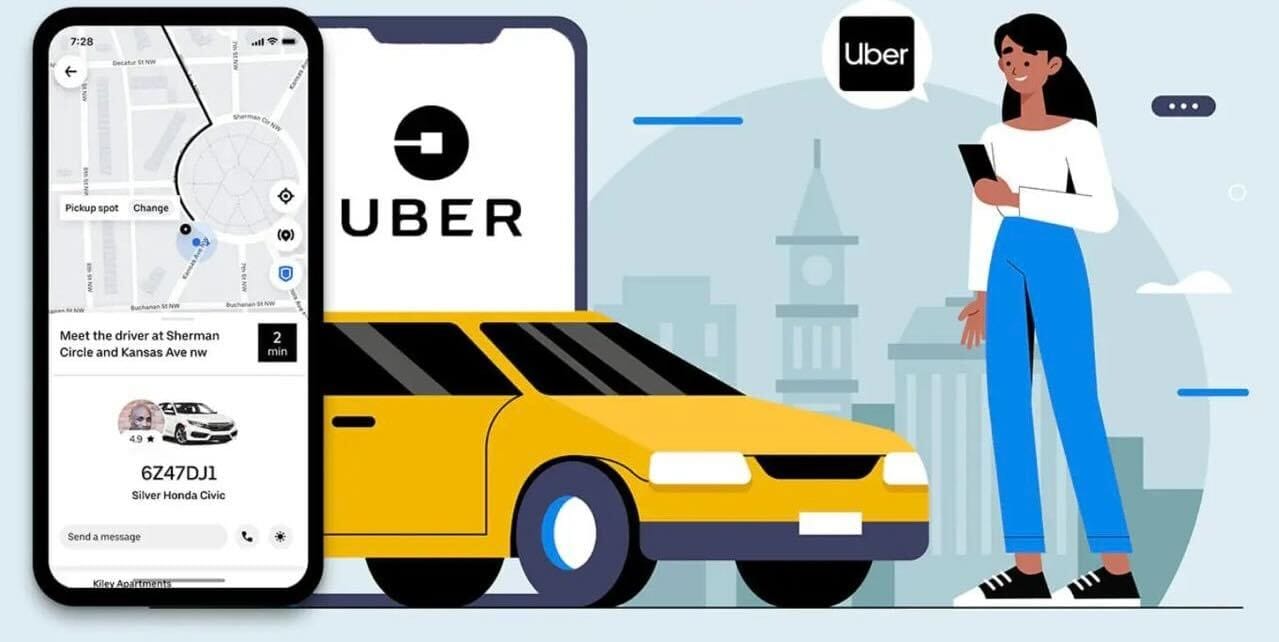
Lesson Learned: You don’t need support reps with ride-sharing backgrounds to deliver standout service. What matters most is how they handle frustration, communicate empathy, and build trust when it counts, not just by knowing your product.
When Industry Experience Actually Matters
There are times when it should be your top priority:
1) You sell technical products with high ticket value or compliance needs
2) You’re in healthcare, legal, or finance, where accuracy = trust
3) Your team lacks training bandwidth
4) Your buyers expect expert-level guidance out of the gate
In these situations, hiring someone who’s already “been there” can help you avoid costly mistakes.
But even here, don’t sacrifice empathy or communication skills for knowledge alone.
The Smartest Move? Hire for Soft Skills. Train for Product.
You don’t need a “unicorn” hire who has both. That’s expensive, rare, and slow to find.
What scales better?
Hire someone with:
- Excellent communication
- High ownership
- Empathy under pressure
- Willingness to learn
Then give them tools, templates, and training.
You’ll get a better customer experience in week one, and a brand ambassador by month three.
What to Look for in Interviews (That Resumes Don’t Show)
Forget keyword-stuffed CVs. Here’s how to test what actually matters:
1. Empathy Simulation
“A customer’s birthday gift arrived 3 days late. What would you say?”
Listen for tone, not policy.
2. Tone Translation
Ask them to rewrite a cold response (“Please be patient as we investigate your issue”) in your brand’s voice.
3. Rule-Bending Scenarios
“A customer is asking for a refund beyond your 30-day policy. What do you do?”
Look for balance between rules and reasoning.
4. Learning Mindset
“Tell us about a time you had to pick up something completely new.”
This is how you hire long-term players, not checkbox fillers.
Internal Tip: Know the Skills That Actually Matter
Not sure how to assess soft skills? We break down the most important ones, like adaptability, active listening, and ownership, in our post.
Final Word: Hire Humans, Not Resumes
Hiring someone with years in your industry might feel like the best choice, but if they can’t talk to customers with warmth, empathy, and care none of it will matter.
You don’t win with perfect policies.
You win when customers want to talk to your support team
And that comes from hiring people with the right mindset, not just the right industry or background.

